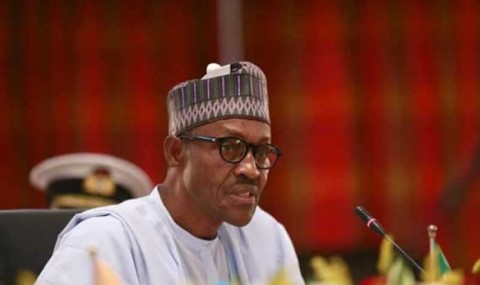Economic: IMF Advises Nigerian Government to Increase Tax Collection, Scrap Subsidy
Featured, Latest Headlines, News Thursday, January 7th, 2016
Ayodele Afolabi, Abuja
Baltimore, MD (African Examiner) – The International Monetary Fund ( IMF), has proffered way out for Nigeria from the current economic downturn by asking the Federal Government to ensure tax collection compliance from the citizens, increasing the rate of Value Added Tax ( VAT) collection and total scrapping of fuel subsidy.
Making a presentation to this effect Wednesday to the Senate leadership, the IMF Managing Director , Christine Lagarde said at this trying times for the country, there was need for the country’s leadership to act with resolve, build resilience and exercise restraint in taking the hard decisions for the needed way out.
According to her, in view of the low oil price and revenues with concomitant failure on the part of government in delivering the needed public services to the citizenry, there was need for fundamental change in the way government operates.
This, she stated, means that hard decisions must be taken on revenue, expenditure, debt, and investment going forward.
She said: “The new reality of low oil prices and low oil revenues means that the fiscal challenge facing government is no longer about how to divide the proceeds of Nigeria’s oil wealth, but what needs to be done so that Nigeria can deliver to its people the public services they deserve—be it in education, health or infrastructure.
“This means that hard decisions will need to be taken on revenue, expenditure, debt, and investment going forward”
She posited that in carrying out the hard decisions and acting with resolve, government would have to stepped up revenue mobilization by broadening its tax base and reducing leakages and improving compliance and enhancing collection efficiency as well as increase VAT rate in the country which according to her, is one of the lowest in the world.
She admonished the federal government against taking foreign loans to run the economy now in its bad shape by building resilience which she said entails making careful decisions on borrowing.
“Nigeria’s debt is relatively low at about 12 percent of GDP. But it weighs heavily on the public purse. Already, about 35 kobo of every naira collected by the federal government is used to service outstanding public debt”, she stressed.
She added that government in exercising restraint in her bid to turn the economy around, would need to focus on the quality and efficiency of every naira spent.
According to her, “This is critically important. As more people pay taxes there will, rightly, be increasing pressure to demonstrate that those tax payments are producing improvements in public service delivery”.
On fuel subsidy, the IMF boss , said though the scheme has its advantages and disadvantages across countries, but for Nigeria, realities on ground have shown that its disadvantages far outweighed any advantage it has, and thus , called for its total removal.
Her words: “Indeed, fuel subsidies are hard to defend. Not only do they harm the planet, but they rarely help the poor. IMF research shows that more than 40 per cent of fuel price subsidies in developing countries accrue to the richest 20 per cent of households, while only 7 per cent of the benefits go to the poorest 20 per cent.
“Moreover, the experience here in Nigeria of administering fuel subsidies suggests that it is time for a change—think of the regular accusations of corruption, and think of the many Nigerians who spend hours in queues trying to get gas so that they can go about their everyday business.
“At the same time, we should not forget the huge challenges facing Nigeria’s state and local governments. These sub-national governments—which account for the bulk of social spending—have only limited tools to manage the impact of declining oil revenues.
” My message here is to manage better the smaller purse, while building capacity to increase internally generated revenue”.
She however stated that inspite of the current hard time, Nigeria can still revive her economy with attendant inclusive and sustainable growth in diversified ways like the mobile telecommunication sector, the Nollywood Industry etc.
She said: “The good news is that Nigeria is already, in many ways, a 21st century economy.Think of the boom in mobile communications in a country where more than 140 million cell phones are in use, nearly one for each Nigerian.
“Think of the vibrant, home-grown film industry that has become the world’s second-largest by output. Nollywood employs about one million people who create films that are winning audiences across the continent and beyond.
“Think of the growing number of innovative startups—from fashion to software development—that are promoting Brand Nigeria. Indeed, the growth in services to about half of Nigeria’s output is a testament to the transformation that has begun, and which needs to continue”.
Earlier, the Senate President, Bukola Saraki thanked the IMF MD for visiting the country at a time, Nigeria is facing drastic economic challenges and looking for way out.
He promised the international financial expert that the country will on the basis of the change mantra of the present administration , move away from the past in practical terms through zero tolerance for corruption, impunity and other acts of indiscipline.
Related Posts
Short URL: https://www.africanexaminer.com/?p=29151




















